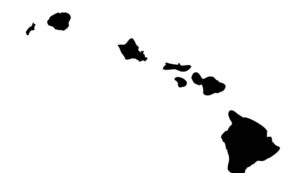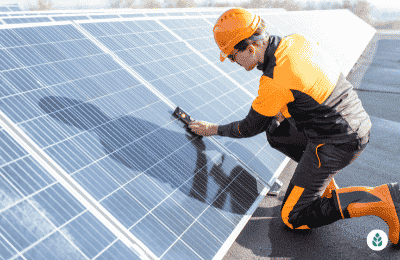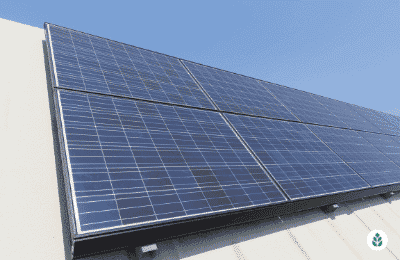
Is Solar Worth It in Hawaii? (2024 Homeowner's Guide)
Here’s a quick overview of solar viability in Hawaii:
- Hawaii ranks 20th in the country for solar installations.*
- The average electricity rate is 40.22 cents per kilowatt-hour.**
- The average solar payback period is 5 years.***
- Homeowners are eligible for the Solar and Wind Energy Credit and the federal solar investment tax credit (ITC).
- The average homeowner saves $76,847 over the lifetime of their solar system.***
*According to the Solar Energy Industries Association.1
**Data from the Energy Information Administration.2
***Calculated assuming the system is purchased in cash.
Each product and or company featured here has been independently selected by the writer. You can learn more about our review methodology here. If you make a purchase using the links included, we may earn commission.
Hawaii ranks 20th in the US in terms of solar adoption, but solar panels are more valuable in the Aloha State than just about every other area in the country. This is due, in large part, to the fact that Hawaii has the highest electricity rates in the nation and receives an abundance of direct and intense sunlight.
Below, you’ll find the criteria you can use to determine if solar is a good investment for your Hawaii home. We’ll also explain the benefits of going solar in HI and some things you can consider to ensure you have the best conversion experience possible.
To speak with an EcoWatch-vetted professional who can help you determine whether solar is worth it for your Hawaii home, follow the links below.

Rising Sun Solar

Regional Service
Average cost
Pros
- Many years of experience
- Competitive pricing
- Locally owned and operated
Cons
- Relatively short workmanship warranty

RevoluSun Hawaii

Regional Service
Average cost
Pros
- Great warranty coverage
- Offers products from leading manufacturers
- Many financing options
- Excellent reputation
Cons
- Limited brands of solar equipment available
- Slightly expensive

Apollo Energy

Regional Service
Average cost
Pros
- Women-owned
- Bilingual service associates
- Certified B Corp
- NABCEP-certified technicians
- Makes charitable contributions
Cons
- Relatively young company
- No leases or PPAs
Watch Below: Learn What Hawaii’s Solar Tax Credit Is And How Much You Can Save
How to Figure Out if Solar Panels are Worth It in Hawaii
Solar panels are abundantly worth the investment for most Hawaii residents, but that doesn’t mean they’re right for everyone. There are quite a few things you’ll need to consider before deciding if you’ll benefit from going solar. We’ll discuss the most significant factors to think about below.
What’s Your Home Electricity Consumption?
Solar panel systems are valuable because they offset electric bills. As such, they’re most useful in areas with high electricity rates or where energy needs are unusually high.
Generally speaking, homes that use at least 500 kilowatt-hours will find that panels are good investments. You can check your monthly energy consumption on your past electric bills, where you’ll often see consumption for the past 6 to 12 months.
The typical home in Hawaii uses only 537 kWh monthly, so from a pure usage standpoint, solar doesn’t appear to be particularly valuable. However, Hawaii is a special case because residents are hit with the highest energy rates in the country at 40.22 cents per kWh, more than double the national average of $16.79. This means that, despite the low consumption in Hawaii as a whole, the majority of homeowners will still find that solar panels are more than worth the investment.
How Much Is It To Go Solar in Hawaii?
The average price for solar panels in Hawaii is around $3.39 per watt, which is just a touch above the national average of $3.33.
However, Hawaiians enjoy a much lower total for converting to solar due to the smaller-than-average system size requirements. Compared to the national average size of 11.5 kilowatts, Hawaii residents typically need just 5.5 kilowatts installed, making the average all-in price around $18,645 or $13,052 after the federal tax credit.
Solar provides the most value per watt where energy bills are high, so the combination of the highest electricity rates and the relatively low price of going solar makes Hawaii one of the best places overall to go solar.
What’s the Payback Period for Solar in Hawaii?

What Are Average Buy-Back Rates in Hawaii?
Most states at this point have mandated net metering to help homeowners or an electricity buy-back program, which incentivizes solar conversion with the opportunity to overproduce energy with your panels and sell the excess back to the electric company either for a credit on your bill or a cash payment. Unfortunately, net metering used to be mandated in Hawaii but is no longer. The lack of net metering means the average ROI on solar panels is lower than it could be. As such, most Hawaii homeowners will want to couple their panel installation with a solar battery system to offset electricity prices at night or during cloudy days when production is limited. Battery storage solutions will add quite a bit to your total installation expense, but it’s typically well worth the investment in an area like Hawaii, where electricity is so expensive.
How Much Sun Does Your Roof Receive?
Solar panels are also more valuable in areas where sunshine is abundant, as longer production hours mean more energy fees are offset and more savings overall. Hawaii receives an average of 240 days of sunny weather annually, which is well above the national average of 205 sunny days. Once again, Hawaii is ranked as one of the best states in the country for solar panel installation. There are some property-specific factors you’ll need to consider, though, as not every home receives the same amount or intensity of sunlight. Homes with south- and west-facing roofs will be best suited for solar conversion, as these roof directions are best for capturing sunlight in the US. Shading on your property can be an issue as well. Homes with roofs that are shaded by trees or nearby buildings will benefit less from solar conversion due to reduced energy production.
What’s the Outlook on Solar in Hawaii?
The solar market in Hawaii has remained more or less stagnant over the past decade, and installations are actually a bit less frequent now than they were ten years ago. While Hawaii is a prime example of showcasing the value of solar panels, the state policies have restricted solar adoption quite a bit. The state incentives are generally good, but there have been restrictions placed on how much energy you can send back to the grid through interconnection, so many residents have opted out altogether. With that being said, solar is still widely accepted in Hawaii and beneficial for most homeowners, but policy changes will need to take effect before installations become more widespread.
Benefits of Solar Energy in Hawaii
There are many upsides to going solar in Hawaii, from financial incentives to environmental benefits. We’ll discuss the most promising and appealing benefits of solar conversion in Hawaii below.
Electricity Bill Savings
The most significant benefit of converting to solar power in Hawaii is the savings you’ll experience on energy rates. Energy is more expensive in HI than in any other area in the US, so a reduction to the average monthly energy bill — $215.98 throughout the state — is a huge upside. Homeowners who can eliminate their utility bills can save nearly $2,600 every year. That comes out to an average savings of $76,847 over the lifespan of your panels, and that’s after they pay for themselves! Another upside to saving on your electric bill with solar panels is that you’ll be less reliant on your power company, which means you’ll avoid future rate hikes for 25+ years, allowing you to budget and plan more efficiently.
Lower Taxes & Access to Other Incentives
Despite the fact that Hawaii has some less-than-favorable policies in place that limit the value of solar panels, there are still quite a few incentives offered by the state and federal governments that make solar more accessible and affordable. Most notable is the federal solar tax credit (ITC), which is a credit to your federal income taxes in the amount of 30% of your system expense. In Hawaii, the ITC is an average of $5,594. Some other Hawaii solar incentives are included below:
- Solar and Wind Energy Credit: This is a state income tax credit that provides even more value than the ITC. This credit is for 35% of your entire system expense — up to $5,000 — and it gets credited to your state income tax liability.
- City of Honolulu Real Property Tax Exemption: This is a property tax exemption that prevents your property taxes from increasing just because you install solar panels. As the name implies, this incentive is only afforded to residents in the City of Honolulu.
- Green Energy Money Saver (GEMS) Hawaii: The GEMS Hawaii program makes solar installation far more accessible to low-income households.
Home Resale Value Increase
Another massive benefit of installing solar panels in Hawaii is the fact that your property value will go up as a result, provided you buy or finance your home solar system. According to research done by Zillow, the average home in the US experiences a value bump of around 4.1%.3 Given the average home value of $840,748, this means the typical value increase is a massive $34,470!4 The value bump could be even higher in more expensive areas, like Oahu, Maui and Kauai. Some homeowners expect solar panels to help increase home value even if they sign a solar lease or power purchase agreement (PPA). Unfortunately, the value bump only applies if you use a cash purchase or solar loan to pay for your system.
Clean, Renewable Energy
While financial incentives will be most important to many solar customers, some will care more about their impact on the environment. Converting to clean energy will reduce your carbon footprint and the pollution to which you contribute. Additionally, by limiting your usage of fossil fuels and using a renewable energy source instead, you make your home more energy independent and lean less on your electric company.
What to Look Out For When Considering Solar in Hawaii
There are a few things you’ll need to consider even after you decide that solar panels are right for your home. We’ll discuss these important considerations below.
Upfront Fees

Payback Period
The payback period, which we mentioned above, is a crucial factor to consider even after you decide to install solar panels. You can use your estimated payback period to budget years into the future, justify adding solar batteries or other add-on products to your home solar project and more. Remember, the average payback period in HI is just 5 years. If your estimated time frame for payback is more than 8 years, your total ROI will be lower than average, although your panels will still likely be worth the investment.
Net Metering Policies in Hawaii
Unfortunately, net metering is no longer mandated or available in the State of Hawaii, so homeowners will have a harder time eliminating their electric bills. Given the amount you can save without net metering, it’s not a make-or-break factor, thankfully. However, many homeowners choose to pay more upfront for a solar battery installation, which can make offsetting electric rates much easier, speed up panel repayment and increase the average return on investment. Additionally, the state tax credit and the ITC can make solar batteries far more affordable.
Pending Policies & Changes to Incentives
The solar industry is rapidly evolving and improving, especially in areas like Hawaii, where some of the policies are less than favorable. Incentives and rebate programs can change, disappear or be added without notice, so it’s best to do your research for updates before you commit. We don’t recommend waiting for better incentives to come along, but understanding what benefits are available to you is important before spending thousands on solar PV equipment.
Weather & Climate in Hawaii
States near the equator receive the most direct and intense sunlight, which means southern states are generally better suited for solar panel installation. Hawaii is the closest US state to the equator and receives far more sunlight than most states, making it one of the best geographic areas for solar in the country. Solar panel production in Hawaii will be limited on cloudy days, but there is plenty of sunlight for most residents to benefit from solar. Hawaii doesn’t experience much extreme weather that makes solar less valuable or puts panels at risk of damage. There are occasional intense winds that could damage your equipment, but opting for a solar installer that provides a good physical protection warranty will provide plenty of peace of mind for most homeowners. Overall, weather and climate aren’t much of a concern when it comes to going solar in Hawaii.
Companies Pushing Solar Leases or PPAs
Finally, you need to be careful of disingenuous or unreliable solar companies when converting to solar power. Most of the time, you can assume that companies offering “free solar panels” or “first year free” aren’t a good option. This is typically a marketing scheme to get you to sign a solar lease or power purchase agreement (PPA). Leasing solar panels isn’t recommended, as they don’t bump up your home value, provide far fewer savings than a solar loan and prevent you from taking advantage of the federal tax credit. Especially with the affordability and accessibility of solar loans, solar leases and PPAs should be avoided if possible.
Wrap Up: Is Solar Worth it in Hawaii?
Generally speaking, solar panels are more than worth it in Hawaii and provide most homeowners with massive savings totaling close to $77,000 after the panels pay for themselves. While the abundant sunlight and high energy rates in Hawaii make solar an excellent option for the majority of residents, it’s not ideal for everyone. You’ll need to assess your home to determine if solar conversion is right for you and your budget. Some things you’ll need to consider include your upfront fees of going solar, how much you spend on energy every month, how long it will take to pay your panels off, shading on your property and more. Given how complex the calculations can be, we recommend contacting a reputable solar installer to help you decide if solar is a worthwhile investment for your home.
See also: Calculate how much you can save by going solar
Read More About Going Solar
- What Are the Most Reputable Solar Installers in HI?
- What Solar Incentives Are There in Hawaii?
- How Much Do Solar Panels Cost in Hawaii?
The cost information presented in this article is derived from a comprehensive analysis, incorporating data from multiple industry sources. The average cost per watt per state was calculated based on figures from Consumer Affairs, Energy Sage, and Berkeley Lab’s Electricity Markets & Policy Department. Additionally, monthly energy consumption and the average monthly cost of electricity were sourced from the U.S. Energy Information Administration, ensuring a well-rounded and accurate representation of the information presented.
Frequently Asked Questions
The EcoWatch team is thrilled to get questions regularly from Hawaii homeowners who are thinking of going solar. Below are some of the questions we see most often, along with our responses. If you have specific questions that aren’t answered here, reach out to our team of solar experts at solar@ecowatch.com.
The answer to this question depends on a bunch of individual factors, including your monthly energy bills, the size of the system you need to offset electricity rates, the direction your roof faces, the portions of your roof that are shaded, and more. The average time period for solar panels to pay for themselves in Hawaii is 5 years, which is about half the national average. Most Hawaii solar customers receive energy savings that offset the total system expense in 2 to 8 years.
For most solar customers, yes! Solar panels let you offset electric r, and rates with the highest per-kWh prices in the entire country, Hawaii is one of the best places to save money with solar panels. Most residents pay off their systems within 5 years, after which they enjoy savings of approximately $76,847. You might need a solar battery to see these savings, but even with that added expense, solar energy systems almost always save money in the long run.
Yes, solar panels will improve your home value in Hawaii. Estimates from Zillow suggest that the average value increase enjoyed from panel installation is around 4.1%, meaning the average property in HI will jump by around $34,470 in value.
Yes, permits are required to install solar panels in Hawaii. The permitting process adds a few hundred dollars to your installation expense, on average, but it’s worth the investment to ensure your property is up to code and your panels are installed safely. Most solar panel installation companies will tackle the permitting process for you as a part of the installation.
DIY installation is possible, but it’s not a great idea. You’ll be putting yourself, your property and your photovoltaic equipment at risk if you install a rooftop solar system yourself. It’s a much better idea to pay the labor fees and have an experienced installer do the work for you.
Links to nearby State
Comparing authorized solar partners
-
- Many years of experience
- Competitive pricing
- Locally owned and operated
- Relatively short workmanship warranty
A+Solar Veteran
Having trouble deciding? Click below and use our process to receive multiple quotes instead:

 233k
233k  41k
41k  Subscribe
Subscribe 



